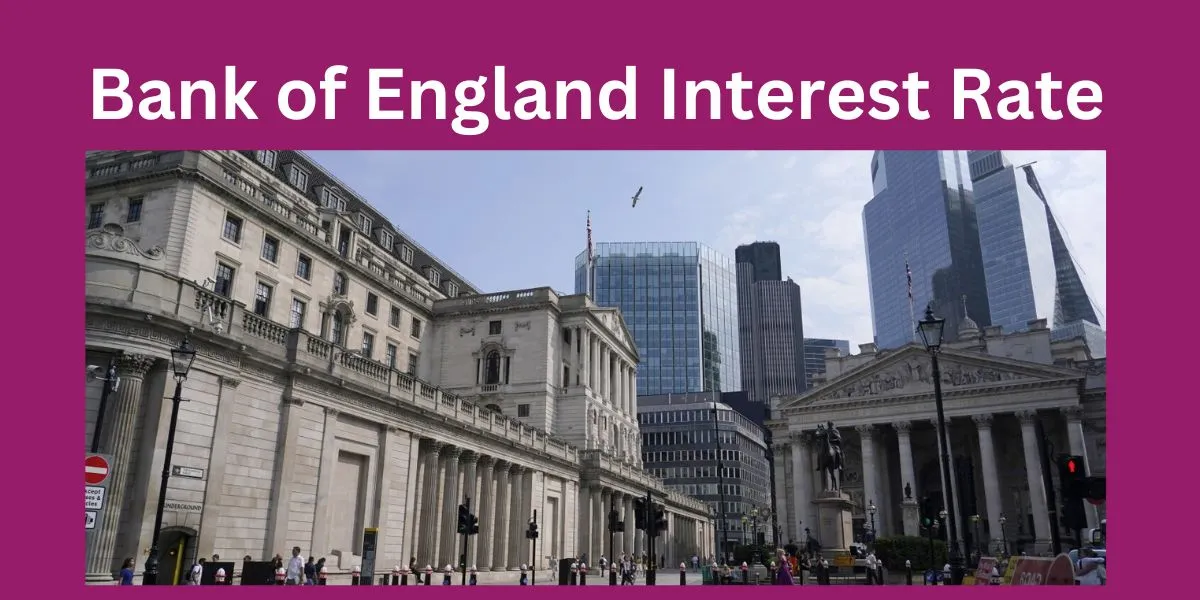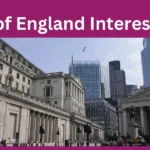Ever wondered what’s behind those headlines about the Bank of England changing its interest rates? It’s not just financial jargon—it affects you directly. Let’s break it down.
The Basics of Interest Rates
What Is an Interest Rate?
At its core, an interest rate is simply the cost of borrowing money or the reward for saving it. When you borrow money from a bank, you pay interest. When you save, the bank pays you interest.
Who Sets the Interest Rate?
The Bank of England, often called the “BoE,” sets the key interest rate for the UK. This rate influences all the other interest rates in the economy.
Why Does the Bank of England Change Interest Rates?
Controlling Inflation
One of the main reasons the BoE adjusts the interest rate is to control inflation. When inflation is high, raising the rate can help slow it down.
Stimulating the Economy
On the flip side, when the economy needs a boost, lowering the interest rate can encourage spending and investment.
How Does the Interest Rate Affect You?
Your Mortgage Payments
If you have a variable-rate mortgage, changes in the BoE’s rate can directly impact your monthly payments. A higher rate means you’ll pay more, while a lower rate means you’ll pay less.
Savings Accounts
Interest rates also affect how much you earn on your savings. A higher rate means better returns, while a lower rate could make your savings grow more slowly.
The Ripple Effect on the Economy
Business Loans
When the BoE raises rates, it costs more for businesses to borrow. This can lead to less investment and slower growth.
Consumer Spending
Higher interest rates can also reduce consumer spending because loans and credit cards become more expensive.
The History of the Bank of England Interest Rate
Past Trends
The interest rate has fluctuated over the years. During economic booms, rates often rise, while during downturns, they fall.
Recent Changes
In recent years, rates have been historically low, but there have been increases to combat rising inflation.
Predictions for the Future
Economic Indicators
Economists keep an eye on various indicators, like inflation rates and unemployment, to predict what the BoE might do next.
What Analysts Are Saying
Many analysts believe that we might see more rate hikes in the near future, especially if inflation remains stubbornly high.
How to Stay Informed
Follow the News
Major changes in interest rates often make headlines, so keeping up with financial news can help you stay informed.
Consult Financial Advisors
If you’re unsure how changes in the interest rate affect your finances, talking to a financial advisor can provide clarity.
Practical Tips for Managing Your Finances
Fix Your Mortgage Rate
If you’re worried about rising rates, consider fixing your mortgage rate to lock in your payments.
Diversify Your Savings
Don’t put all your savings in one place. Look for accounts with competitive rates or consider other investment options.
The Role of the Monetary Policy Committee
Who Are They?
The Monetary Policy Committee (MPC) is a group within the BoE responsible for setting the interest rate.
How Do They Decide?
The MPC meets regularly to discuss the state of the economy and vote on whether to change the rate.
Real-Life Impact Stories
Homeowners
Meet Jane, a homeowner who saw her mortgage payments rise when rates went up. She had to adjust her budget but also saw better returns on her savings.
Small Business Owners
Then there’s Tom, a small business owner. Higher interest rates made his business loans more expensive, so he had to reconsider some expansion plans.
Conclusion
Understanding the Bank of England’s interest rate is crucial because it affects almost every aspect of your financial life, from your mortgage to your savings. While it might seem like a distant concept, its impact is very real and personal. Stay informed, make smart financial decisions, and you’ll navigate these changes like a pro.
FAQs
1. How often does the Bank of England review the interest rate?
The Bank of England’s Monetary Policy Committee meets about eight times a year to review and potentially change the interest rate.
2. What happens if the interest rate goes negative?
Negative interest rates are rare but possible. They would mean banks pay to deposit money, encouraging spending over saving.
3. How quickly do changes in the interest rate affect mortgage payments?
It depends on your mortgage type. Variable rates might change within a month, while fixed rates won’t change until the end of the fixed period.
4. Why are interest rates important for the economy?
Interest rates help control inflation, encourage investment, and maintain economic stability.
5. Can I negotiate my interest rate with my bank?
You can’t negotiate the base rate set by the BoE, but you might be able to negotiate specific rates on loans or mortgages directly with your bank.










